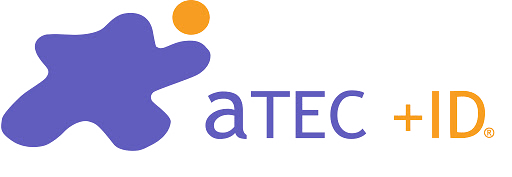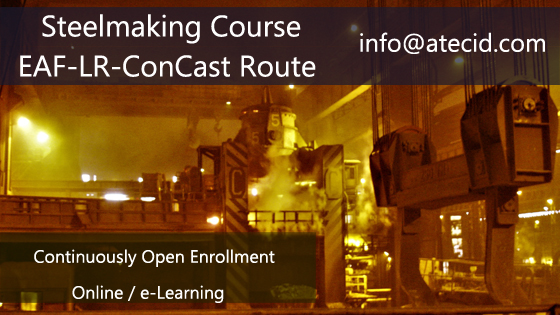This course addresses the Steelmaking through the electric arc furnace (EAF), ladle refining, and continuous casting route. The preferences of those attending the course led us to develop and improve this course, in an Online version, in which we also have the collaboration of Germán Ghiotti, a professional from both the steel and teaching sectors. Materials Engineer and Studies in Physics, with extensive experience in Votorantim Acerbrag (Argentina) and Gerdau (Argentina and Brazil).
This course is not only of interest to new professionals in the sector, but it is mainly of interest to senior professionals, who find an opportunity to acquire new points of view on technical issues, new methods and ideas on how to analyze their particular case. We are also visited by professionals with management or leadership functions, for whom it is important to know what steelworks are, how steel is manufactured, and the areas of activity and knowledge of steelmaking and of a professional who will probably address quality issues, process parameters and facilities, positions and functions, maintenance, Lean management, continuous improvement, new projects, etc., and even analyze costs.
The course takes place on our online training platform, including the posibility to ask for a live session/tutorial if needed, by videoconference or virtual classroom. Not for this reason, quality is lost, on the contrary, this modality is ideal for this type of content in which it is necessary to understand formulas and effects, since it allows a progress through the course, adapted to each person.
The course structure is as follows:
Module 1: Vision of Steelmaking
After taking a tour of several fundamental issues in the sector, together with its current circumstances and future trends, a general description of what melting in an EAF (Electric Arc Furnace) is, with ladle refining and continuous casting of different sections. The steel sector is one of the major world sectors and markets, important in all economies, both developed and developing, where the energy-environmental aspect has always been key, but at this time even more so, and therefore the participant will obtain also a review on this topic. This module is continuously updated.
Module 2: EAF
EAF is understood to be the melting furnace, although ladle refining is also an EAF. In this module the study of this process is carried out in its entire scope as a chemical process, facilities and operations, dwelling on each of the necessary operations and on the details of the steel-slag interaction. The participant will be able to know the different aspects, about compositions, temperatures, process steps and issues that influence quality, productivity and costs, and how the fusion process is linked with the preparation of the refining.
Module 3: Ladle refining
The participant will obtain a detailed description of how the melting phase links with the refining or ladle furnace phase, desulfurization, deoxidation, additions and alloys, decarburization, temperature, control of slag and inclusions, refractories, etc., and how casting is prepared.
Module 4: Continuous casting
This part addresses the entire continuous casting process, what influences the quality of the resulting product, cleanliness, inclusions, surface quality, cracks, internal quality, solidification, segregations, etc., as well as the facilities and their operations.
The entire sector widely applies ISO 9001: 2015 standard as quality management system in these companies and groups. Both for this reason, and for the changes that were effectively introduced in the companies around 2018, it is interesting that the participant is aware of the application of this standard in steel companies, and specifically in steelworks.
Enrolment and Price
Enrolment will be open till last day.
- The price is 900 € per person.
- Payment must be made before the course starts
- You can use our Registration Form, enrollment is continuous, you can take the curse any time you want. Once started, you will have three months to complete it.
The participant will receive a username and password to access the course in our training platform on the same day it starts, or usually a few days before.
It is necessary to have a PC or MAC computer, or a mobile device type tablet or smartphone with internet access to take the course.
The participant will receive a diploma or certificate at the end of the course. To obtain a diploma of achievement, it will be necessary to have completed at least 75% of the contents and have passed 50% of the evaluation tests, and to obtain a certificate of attendance it will be necessary to have completed 75% of the contents and have attended at least 25% of the planned course hours.
We appreciate the dissemination of the information about this course.
You can access the course sheet.



